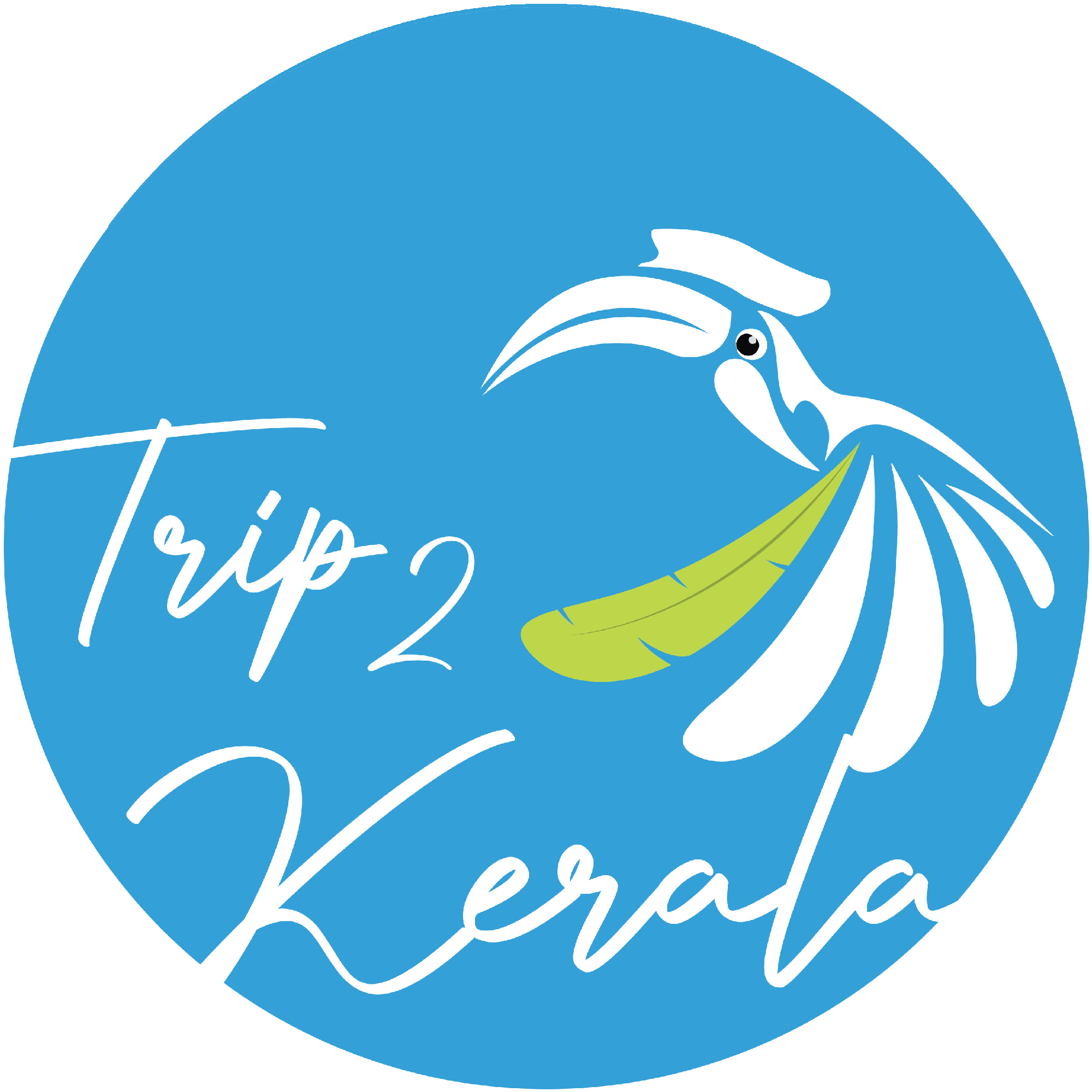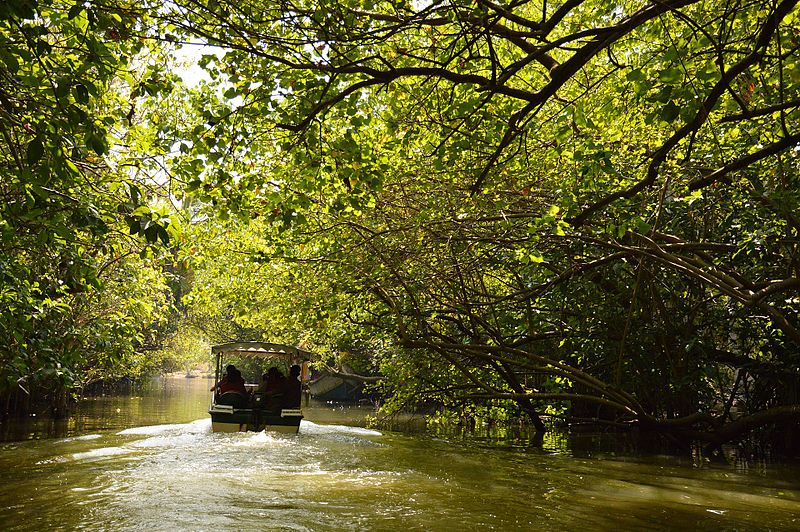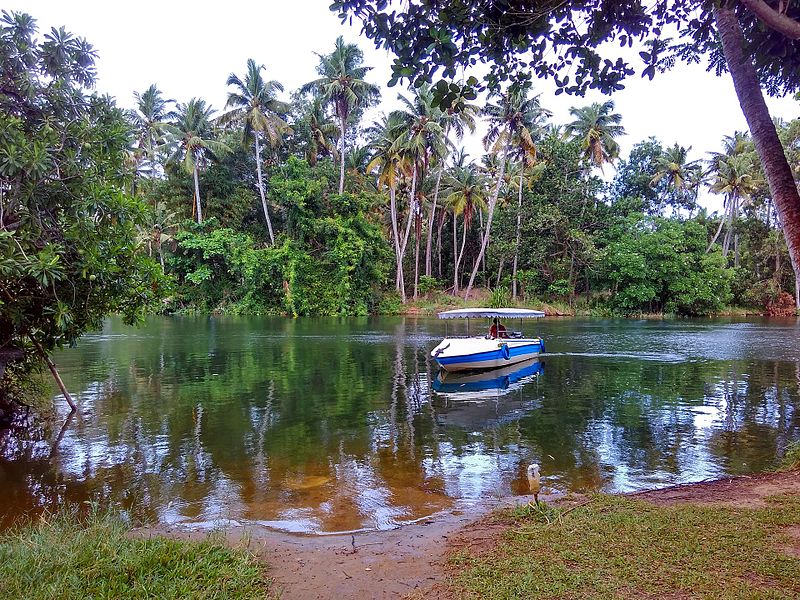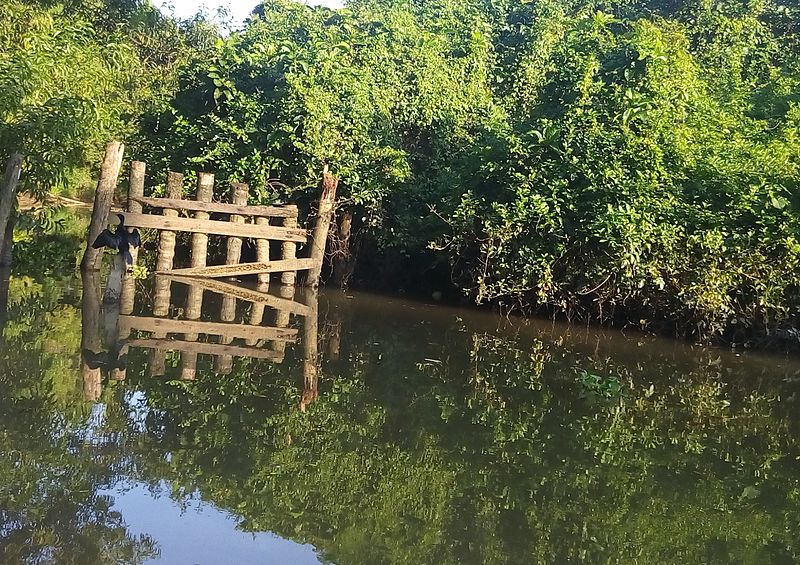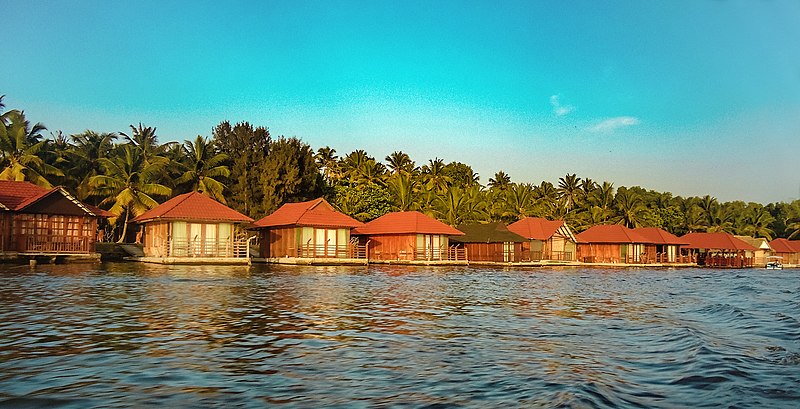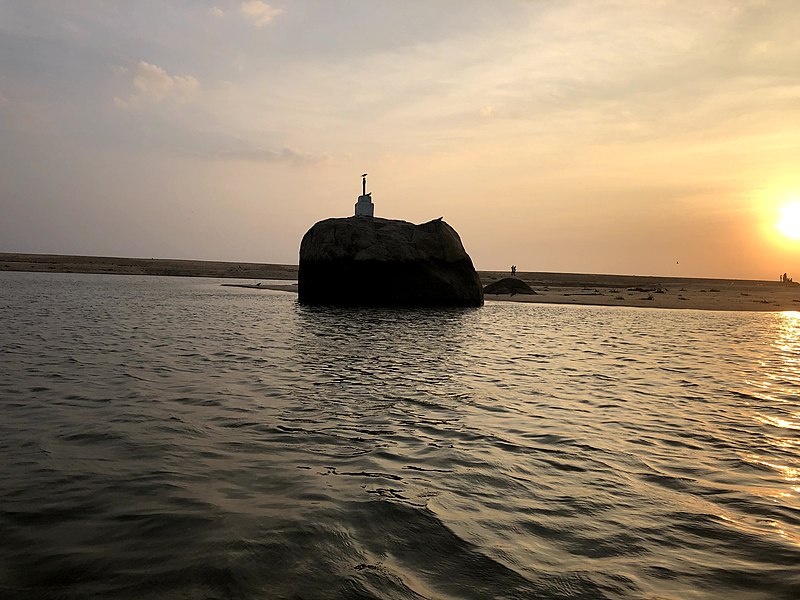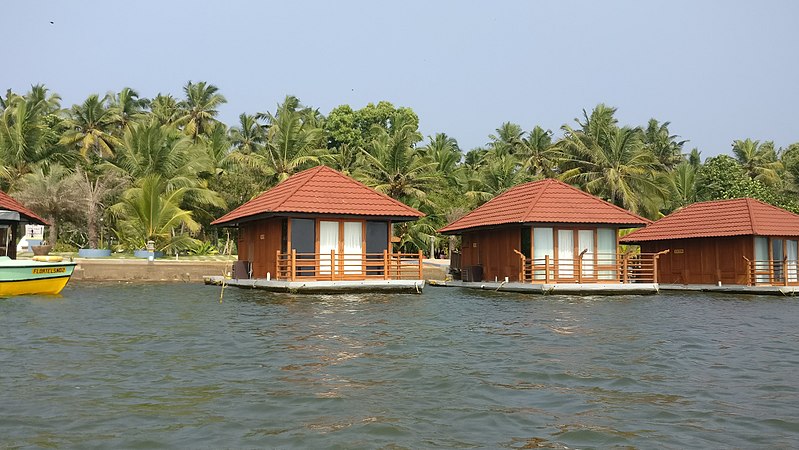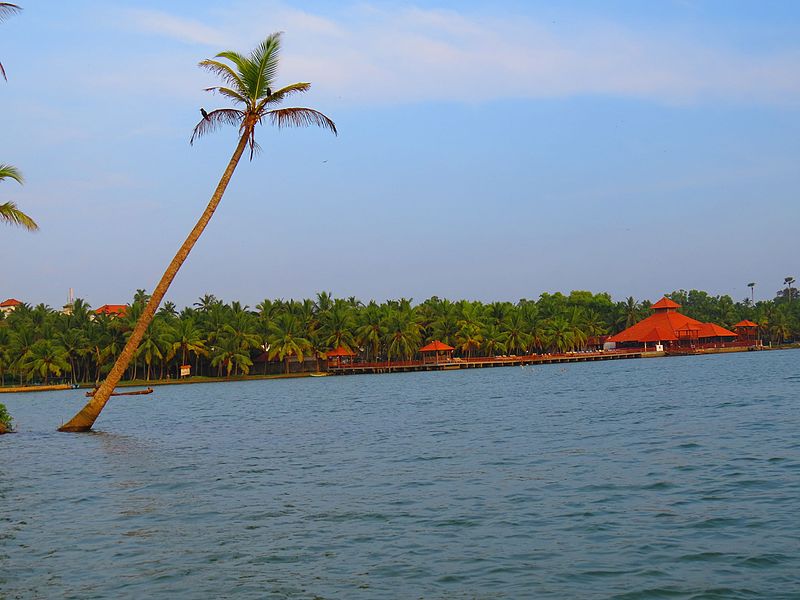Poovar Island and backwaters
Located near the confluence of the Neyyar River and the Arabian Sea, Poovar Island is a small island bordered by backwaters. A beach, island, backwater, river and sea all meet in a single place in Poovar, casting an enchanting spell. The northern end of Thiruvananthapuram is marked by this village and the end of Kerala by Pozhiyoor, the next village. Tourists come here all year round to enjoy the beach. There is only boat access to Poovar, which lies about 30 kilometers south of Trivandrum. The land with golden sand offers spectacular views of the backwater formations and is a great picnic spot. A boat trip around the area is an exquisite experience that can be arranged here at a reasonable price. The backwaters of this area are a popular tourist attraction. There is a wide variety of watercraft to choose from, including small canoes to large luxury houseboats. Spices and flowering plants grow densely here among coconut and banana groves, creating a pleasing green scene. The vibrant wonder of nature is further enriched by butterflies and birds. Unfortunately, swimming is not permitted at Poovar beach. One should stay at Poovar Island if you want to relax a little bit. Poovar is a stunning romantic retreat that deserves a place among Kerala’s honeymoon destinations. One can reach the closest fishing village in just two minutes by boat. From there, you can reach a traditional martial arts venue within a short walk. Kerala’s unique self-defense system, Kalarippayattu, has a century-long tradition in this area
History:
It is said that the name “Poovar” originates from Marthanda Varma. The area was called Pokkumoosapuram before that. When riots erupted, the king reached Poovar. The spring season was making the river more attractive as the flowers on the trees from either side fell into the water. Marthanda Varma was struck by the picturesque surroundings and remarked that this was poo-var, which is Malayalam for “flower” and “river”. Historians have described Poovar as a trading centre for timber, sandalwood, ivory, and spices. The village was an ancient Muslim settlement along India’s west coast. In the year 1400 AD, the mosque in Poovar was built by Malik Deenar, one of the Arabian missionaries who brought Islam to Kerala. Additionally, Poovar was a major port during the Chola dynasty. Megasthenes, Pliny the Elder, Marco Polo, and other Greek and Roman historical figures mention the ties to Greece and Rome. In ancient texts, Poovar is called Ophir. In addition to trading with international markets, Poovar had a well-trained army and some ships at this time. The Travancore army used these forces in the Battle of Colachel and Battle of Kayamkulam during the Travancore-Dutch War.
Getting there :
Nearest railway station: Thiruvananthapuram, about 23 km away
Nearest airport: Trivandrum International Airport, about 25 km away
